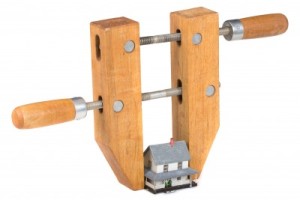


Using Feng Shui To Sell Your Ludlow or Rutland VT Home

1. Pay special attention to the front door, which is considered the “mouth of chi” (chi is the “life force” of all things) and one of the most powerful aspects of the entire property. Abundance, blessings, opportunities, and good fortune enter through the front door. It’s also the first impression buyers have of how well the sellers have taken care of the rest of the property. Make sure the area around the front door is swept clean, free of cobwebs and clutter. Make sure all lighting is straight and properly hung. Better yet, light the path leading up to the front door to create an inviting atmosphere.
2. Chi energy can be flushed away wherever there are drains in the home. To keep the good forces of a home in, always keep the toilet seats down and close the doors to bathrooms.
3. The master bed should be in a place of honor, power, and protection, which is farthest from and facing toward the entryway of the room. It’s even better if you can place the bed diagonally in the farthest corner. Paint the room in colors that promote serenity, relaxation, and romance, such as soft tones of green, blue, and lavender.
4. The dining room symbolizes the energy and power of family togetherness. Make sure the table is clear and uncluttered during showings. Use an attractive tablecloth to enhance the look of the table while also softening sharp corners.
5. The windows are considered to be the eyes of the home. Getting the windows professionally cleaned will make the home sparkle and ensure that the view will be optimally displayed.
Get more information about selling your Ludlow or RutlandVT home at ISellVermontRealEstate.com.
What’s the value of your Ludlow or Rutland VT home?
Source: Sell Your Home Faster With Feng Shui by Holly Ziegler (Dragon Chi Publications, 2001) Reprinted with permission Realtor Magazine.
5 Things To Do Before Selling Your South Central VT Home
If you are thinking of selling your Rutland or Okemo VT home this spring or summer, now is the time to start getting ready to sell. Below are 5 things to do before putting the ‘For Sale’ sign in the yard:
1. Have a pre-sale home inspection. Be proactive by arranging for a pre-sale home inspection. An inspector will be able to give you a good indication of the trouble areas that will stand out to potential buyers, and you’ll be able to make repairs before open houses begin.
2. Organize and clean. Pare down clutter and pack up your least-used items, such as large blenders and other kitchen tools, out-of-season clothes, toys, and exercise equipment. Store items off-site or in boxes neatly arranged in the garage or basement. Clean the windows, carpets, walls, lighting fixtures, and baseboards to make the house shine.
3. Get replacement estimates. Do you have big-ticket items that are worn our or will need to be replaced soon, such your roof or carpeting? Get estimates on how much it would cost to replace them, even if you don’t plan to do it yourself. The figures will help buyers determine if they can afford the home, and will be handy when negotiations begin.
4. Find your warranties. Gather up the warranties, guarantees, and user manuals for the furnace, washer and dryer, dishwasher, and any other items that will remain with the house.
5. Spruce up the curb appeal. Pretend you’re a buyer and stand outside of your home. As you approach the front door, what is your impression of the property? Do the lawn and bushes look neatly manicured? Is the address clearly visible? Are pretty flowers or plants framing the entrance? Is the walkway free from cracks and impediments?
Learn more about selling your Rutland and Okemo VT home at ISellVermontRealEstate.com.
What is your Vermont home worth?
www.REALTOR.org/realtormag Reprinted from REALTOR® Magazine Online by permission of the NATIONAL ASSOCIATION OF REALTORS® . Copyright 2003. All rights reserved.
450 Ideas To Help Sell Your Rutland and Okemo Mountain VT Home Faster

Through these 450 Ideas you will learn how to capitalize on your investment, reduce stress, be in control of your situation, and make the most profit possible.
You’ll discover how to avoid financial disappointment or worse, a financial disaster when selling your Rutland Vt home. Using a common sense approach, you get the straight facts about what can make or break the sale of your home.
You owe it to yourself to learn how these important tips will give you the competitive edge to get your Rutland VT home sold fast and for the most amount of money.
Simply click here, fill out the form and your FREE eBook, 450 Ideas…To Help Sell Your Home Faster, will be emailed to you.
Rutland, Okemo Mountain VT Home Sellers – Should I Take First Offer?

- An early offer (if you’re lucky!) doesn’t necessarily mean buyers are lining up to follow suit. It could just mean that your home meets the needs or preferences of that one particular buyer who made the offer.
- Your home will get the most interest from buyers just after it goes on the market. The longer it stays on the market, the more “desperate” buyers will think you are, prompting lower and lower offers.
- Even if the first offer is thousands lower than your list price, consider carefully whether it might be enough — in terms of price and contract terms — before rejecting it out of hand. After all, the longer your home is on the market, the more it costs you in mortgage payments, taxes, insurance, upkeep and sheer inconvenience.
- If the offered price and contract terms are less than ideal, start negotiations by making a counteroffer, being as flexible with the terms as possible. It isn’t uncommon for buyers to offer a price below what they are truly willing to pay, sometimes much below, just to see if they can buy under market.
An offer indicates serious interest in your home — don’t underestimate that but don’t take it for granted, either.
Thinking of selling your Rutland VT home? We’ll be happy to work with you to fine-tune your home’s listing price so it fits our local market. We can also advise you on what would make your home more saleable at low cost to you. Most importantly, we can put our expertise to work for you when it comes time to negotiate with potential buyers. Learn more about us by visiting ISellVermontRealEstate.com.
10 Questions To Ask Ludlow and Rutland Home Inspectors

1. Will your inspection meet recognized standards? Ask whether the inspection and the inspection report will meet all state requirements and comply with a well-recognized standard of practice and code of ethics, such as the one adopted by the American Society of Home Inspectors or the National Association of Home Inspectors. Customers can view each group’s standards of practice and code of ethics online at Ashi.org or Nahi.org. ASHI’s Web site also provides a database of state regulations.
2. Do you belong to a professional home inspector association? There are many state and national associations for home inspectors, including the two groups mentioned in No. 1. Unfortunately, some groups confer questionable credentials or certifications in return for nothing more than a fee. Insist on members of reputable, nonprofit trade organizations; request to see a membership ID.
3. How experienced are you? Ask how long inspectors have been in the profession and how many inspections they’ve completed. They should provide customer referrals on request. New inspectors also may be highly qualified, but they should describe their training and let you know whether they plan to work with a more experienced partner.
4. How do you keep your expertise up to date? Inspectors’ commitment to continuing education is a good measure of their professionalism and service. Advanced knowledge is especially important in cases in which a home is older or includes unique elements requiring additional or updated training.
5. Do you focus on residential inspection? Make sure the inspector has training and experience in the unique discipline of home inspection, which is very different from inspecting commercial buildings or a construction site. If your customers are buying a unique property, such as a historic home, they may want to ask whether the inspector has experience with that type of property in particular.
6. Will you offer to do repairs or improvements? Some state laws and trade associations allow the inspector to provide repair work on problems uncovered during the inspection. However, other states and associations forbid it as a conflict of interest. Contact your local ASHI chapter to learn about the rules in your state.
7. How long will the inspection take? On average, an inspector working alone inspects a typical single-family house in two to three hours; anything significantly less may not be thorough. If your customers are purchasing an especially large property, they may want to ask whether additional inspectors will be brought in.
8. What’s the cost? Costs can vary dramatically, depending on your region, the size and age of the house, and the scope of services. The national average for single-family homes is about $320, but customers with large homes can expect to pay more. Customers should be wary of deals that seem too good to be true.
9. What type of inspection report do you provide? Ask to see samples to determine whether you will understand the inspector’s reporting style. Also, most inspectors provide their full report within 24 hours of the inspection.
10. Will I be able to attend the inspection? The answer should be yes. A home inspection is a valuable educational opportunity for the buyer. An inspector’s refusal to let the buyer attend should raise a red flag.
Are you a Ludlow or Rutland Vermont home buyer with questions concerning home inspections? Give me a call. I’m happy to answer all your questions. Also, visit ISellVermontRealEstate.com to learn more about buying a Ludlow home.
Information is courtesy of Realtor Magazine with permission by the National Association of Realtors.
Selling Your Ludlow VT Home With Short Sale
If you’re thinking of selling your Ludlow VT home, and you expect that the total amount you owe on your mortgage will be greater than the selling price of your home, you may be facing a short sale. A short sale is one where the net proceeds from the sale won’t cover your total mortgage obligation and closing costs, and you don’t have other sources of money to cover the deficiency. A short sale is different from a foreclosure, which is when your lender takes title of your home through a lengthy legal process and then sells it.

- Refinancing your loan at a lower interest rate
- Providing a different payment plan to help you get caught up
- Providing a forbearance period if your situation is temporary
When a loan modification still isn’t enough to relieve your financial problems, a short sale could be your best option if
- Your property is worth less than the total mortgage you owe on it.
- You have a financial hardship, such as a job loss or major medical bills.
- You have contacted your lender and it is willing to entertain a short sale.
2. Hire a qualified team. The first step to a short sale is to hire a qualified real estate professional* and a real estate attorney who specialize in short sales. Interview at least three candidates for each and look for prior short-sale experience. Short sales have proliferated only in the last few years, so it may be hard to find practitioners who have closed a lot of short sales. You want to work with those who demonstrate a thorough working knowledge of the short-sale process and who won’t try to take advantage of your situation or pressure you to do something that isn’t in your best interest.
A qualified real estate professional can:
- Provide you with a comparative market analysis (CMA) or broker price opinion (BPO).
- Help you set an appropriate listing price for your home, market the home, and get it sold.
- Put special language in the MLS that indicates your home is a short sale and that lender approval is needed (all MLSs permit, and some now require, that the short-sale status be disclosed to potential buyers).
- Ease the process of working with your lender or lenders.
- Negotiate the contract with the buyers.
- Help you put together the short-sale package to send to your lender (or lenders, if you have more than one mortgage) for approval. You can’t sell your home without your lender and any other lien holders agreeing to the sale and releasing the lien so that the buyers can get clear title.
3. Begin gathering documentation before any offers come in. Your lender will give you a list of documents it requires to consider a short sale. The short-sale “package” that accompanies any offer typically must include
- A hardship letter detailing your financial situation and why you need the short sale
- A copy of the purchase contract and listing agreement
- Proof of your income and assets
- Copies of your federal income tax returns for the past two years
4. Prepare buyers for a lengthy waiting period. Even if you’re well organized and have all the documents in place, be prepared for a long process. Waiting for your lender’s review of the short-sale package can take several weeks to months. Some experts say:
- If you have only one mortgage, the review can take about two months.
- With a first and second mortgage with the same lender, the review can take about three months.
- With two or more mortgages with different lenders, it can take four months or longer.
What is my Ludlow VT home worth?
Information courtesy of Realtor magazine with permsiion by the National Association of Realtors.
Tax Deductions For Okemo Mountain Second Homeowners
The day all Americans dread, tax day is only a few weeks away. If you are an Okemo Mountain second homeowner, you don’t want to miss out on any of the deductions that owning your second home provides. The following tax tips for Okemo Mountain csecond home buyers is courtey of H&R Block.

Second Home Deductions
If you take out a mortgage to buy, construct or substantially improve a second home, the interest is deductible if you itemize deductions. Your deduction may be limited if the mortgage exceeds the fair market value of the home or if the mortgages on your main home and your second home exceed $1 million ($500,000 if you’re Married Filing Separately). These limits do not apply to mortgages taken out before Oct. 14, 1987 (called grandfathered debt), but grandfathered debt reduces the $1 million and $500,000 limits.
If you take out a home equity loan or line of credit on your second home, the interest is fully deductible unless the mortgage exceeds the fair market value of the home reduced by the amount of the mortgages, including grandfathered debt, as previously described, or if the mortgages of this type on your main home and second home exceed $100,000 ($50,000 if Married Filing Separately).
Real estate taxes and points you pay over the life of a mortgage to acquire a second home are deductible if you itemize deductions. Points you pay on a mortgage to acquire a second home are also deductible over the life of the loan. If you refinance or sell the home before the mortgage is paid off, you can deduct in the year of sale or refinancing any points you didn’t previously deduct.
Renting Your Second Home
If you use the home as a residence and rent it for less than 15 days during the year, you don’t have to report the rental income. It’s considered a residence if you (or a family member) use the home for personal purposes for more than the greater of 14 days or 10% of the number of days that you rent the home at fair rental value. You may not deduct any expenses attributable to the rental, but you may deduct interest and taxes if you itemize your deductions.
If you use the home as a residence and rent it for 15 days or more, you must report the rental income. You may deduct your interest and taxes as described above. But you can deduct other rental expenses (including depreciation) only up to the amount of the income reduced by the deductions for interest and taxes. Any rental expenses not deductible under this rule are carried to the following year, when they are again subject to this limit.
If you don’t use the home as a residence, the above rules don’t apply. You report your income and expenses in the same manner as for other rental property, and you can’t deduct expenses other than interest, taxes and casualty losses attributable to your personal use of the home.
Selling Your Second Home
If you sell your second home, the gain will be taxed as capital gain, long-term if you owned it for more than a year and short-term if you owned it 1 year or less. A loss on the sale can’t be deducted. If the second home was rented for profit, gain generally is taxed as capital gain and a loss can be deducted. The part of the gain attributable to depreciation is taxed at a maximum rate of 25%. If you used the home for personal purposes and rented it, you have to treat the sale as part personal, part business.
If the second home was your main home for at least 2 years during the 5-year period ending on the date of sale, you can exclude up to $250,000 of the gain (up to $500,000 if Married Filing Jointly and you both used the home as your main home for the required period). You can’t claim the exclusion if you sold another home within the 2-year period ending on the date of sale and claimed the exclusion for that sale.
If you don’t meet the 2-year ownership or use requirement, you may claim the exclusion only if you sell the home because of a change in health, place of employment, or another “unforeseen circumstance.” In this situation, the maximum exclusion will be reduced. You may not exclude any gain attributable to depreciation you claimed after May 6, 1997.
If you sell a second home and use it other than as a principal residence (nonqualified use) at any time after 2008, the gain eligible for the exclusion may be limited. For this purpose, nonqualified use does not include:
- Any nonqualified use before 2009.
- Any period during the 5-year period that is after the last period of use as a principal residence.
- A period of temporary absence of up to 2 years for reasons of health, employment and unforeseen circumstances.
- Any period (not to exceed 10 years) during which the taxpayer or spouse was serving on qualified official extended duty.
This post is not meant to give tax advice to Okemo Mountain second homeowners. Please consult your account or tax advisor with any questions you have.
Energy Saving Tax Credits Help Ludlow VT Homeowners
The ‘American Recovery and Reinvestment Act of 2009‘ which became law on February 17, promotes energy independence and green jobs through tax credits and government grants. This is part of an effort to make Ludlow VT homes and buildings more energy efficient.
Energy saving provisions include:
- $6 billion to state and local governments for energy efficiency and conservation grants for energy audits, retrofits and financial incentives.
- 30% tax credit (increased from 10%) to homeowners for new furnaces, windows and insulation.
- $5 billion to modernize the nation’s electricity grid and install smart meters on homes, saving homeowners money.
- $5 billion for weatherization assistance for low income households.
- $2 billion for federally assisted housing (section 8) efficiency efforts.
This bill is good news for Ludlow VT homeowners wanting to make their homes more energy efficient. Interested in buying a Ludlow VT home? Visit ISellVermontRealEstate.com.
Low Cost Fixes Sell Okemo Mountain Homes
If you have a home that only you can love, you will benefit for these low cost fixes to getting your Okemo Mountain home sold quickly. We don’t live in a house the way we sell a house. Buyers aren’t interested in seeing dirty socks lying around or dirty dishes in the sink. Below are a list inexpensive things, from Realtor Magazine, that you can do to make buyers fall in love with your Okemo Mountain home.
1. Move it.
Simply rearranging the furniture can reenergize a room. Add and remove furniture, lamps, rugs, and accessories from other parts of the house to create a whole new look. Mirrors are particularly useful when it comes to updating a room. Try one out in different rooms to see where it fits best. Even just moving a mirror to a different wall can create a more welcoming feel.
2. Plant it.
Houseplants are a generally undervalued design component that can add texture, warmth, and color to any room. Just drop plants in their store containers into decorative planters. Small plants can be moved easily and regrouped to change a room’s look, while larger ones make a statement on their own.
Group plants together of differing heights, fullness, and color for the most dramatic effect. It’s important to have plants that are well maintained and in tip-top condition.
3. Paint it.
Paint is one of the easiest and most cost-effective ways to make a substantial change. Use dramatic colors in powder rooms and dining rooms, and more neutral colors in living spaces. When selecting colors, “be sure to ask, ‘What am I trying to do? How do I want this to feel?'” And always, always do a test before you paint the whole room.
4. Organize it.
Clutter just happens. So neaten up! A variety of organizing tools can make a space feel polished while maintaining utility. Hooks and shelves inside the door give people a place to hang coats and keys, while canvas bins or natural baskets help contain magazines and mail. Just a row of hooks pre-attached on a board is so easy to install. And shelves are a great way to neatly display collectibles.
5. Hide it.
Have a banged-up wall? It may be easy to camouflage. Paintable wallpaper will smooth out an uneven wall or hide minor dents and dings. Adventurous home owners can even try a simple two-step painting process for a more complex finish. A apply a solid base coat, then a glaze.
Your intent should never be to mislead buyers; be sure to disclose flaws that would affect home value.
6. Replace it.
Cabinet handles, switch plates, and other small pieces of housing hardware can update a home for just a few dollars a piece. Scan each room to see what looks worn or outdated and then replacing it. Inexpensive quick-connect faucets can make upgrading the look of your bathroom a snap. Just be sure to measure before you go to the hardware store. Some sinks are drilled for an eight-inch spread. Others require just four inches.
And don’t forget the toilet seat. Fresh towels and a new toilet seat go a long way toward making a bathroom feel clean and new.
7. Light it.
Lighting can have a major impact on a home’s look and feel. Whether a room seems dark or too bright and harsh, try “layering” the lighting by adding accent pendants and lamps. Make sure they have independent controls, so that you can turn them on and off at will.
Light is such a mood setter. You can create a cozy feel just by turning down the lights. Add dimmers in the dining room, bathrooms, kitchen, and even the hallways for less than $4 each. Then adjust the lighting to create the mood you want.
8. Clean it.
Turn a critical eye to the flooring to make sure it’s up to snuff. Scrub grout and seal natural stone. Rub out scratches and nicks on wood floors with scratch cover. Get down on your hands and knees and detail the floors. It takes a little elbow grease, but the results are well worth it. Vinyl flooring is a bit harder to spruce up but usually can be replaced easily and inexpensively.
Interested in selling your Okemo Mountain home? Give me a call, I’m glad to help!
Should I Move Up To A Larger Ludlow VT Home?
Should I move up to a larger home is a question many Ludlow VT homeowners are asking. The questions below will help you decide whether you’re ready for a home that’s larger or in a more desirable location.
1. Have you built substantial equity in your current home?
If you have owned your Ludlow VT home for a number of years you might have built up some equity. Look at your annual mortgage statement or call your lender to determine your loan balance. Then give me a call to determine your home’s market value. The difference between your loan amount and market value is your equity.
2. Has your income or financial situation improved?
If your income has increased, you may be able to afford a higher mortgage payment.
3. Have you outgrown your neighborhood?
Often, the neighborhood or location you bought your first home in may no longer suit your needs. You may want to be closer to work, be in a better school district or have a home on a lake rather than close to it.
4. Are there reasons why you can’t remodel or add on?
Sometimes adding on to your current home is the answer. If you will end up over-improving for the neighborhood, moving may be a better option.
5. Are you comfortable moving in the current housing market?
In the current Ludlow VT real estate market, your home may not sell for what it would have a few years ago, but the home you buy will also be less expensive.
6. Are interest rates attractive?
A low rate not only helps you buy a larger home, but also makes it easier to find a buyer and interest rates are currently at record lows.
If you answer yes to most of the questions, it’s a sign that you may be ready to move. If so, please visit ISellVermontRealEstate.com to learn more about the Ludlow VT real estate market or give me a call. I’m glad to help!